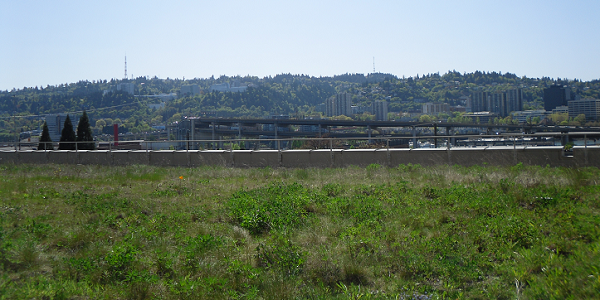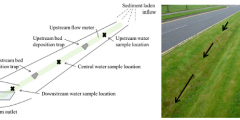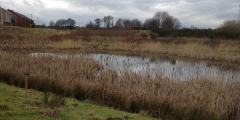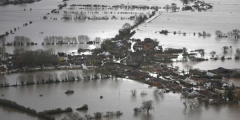Improving urban flood resilience by sustainable drainage retrofit
July 23, 2015
Dr Jessica Lamond (Faculty of Environment and Technology, University of the West of England) and colleagues have recently published a new paper in Proceedings of the Institution of Civil Engineers (ICE) – Urban Design and Planning. This links with Dr Lamond’s research as part of the Blue-Green Cities WP2c (Behavioral Responses of Individuals and Institutions). They investigated whether retrofitting …
Blue-Green Cities Knowledge Exchange Workshop and Symposium, Ningbo China, 15-18th June 2015
June 25, 2015
Members of the Blue-Green Cities Research Consortium, including Prof Colin Thorne and Dr Emily Lawson, School of Geography, University of Nottingham (UoN), headed over to the Ningbo China Campus (UNNC) for a week of knowledge exchange, project dissemination, engagement with City officials and cultural learning. The Ningbo event, entitled Blue-Green Cities: Integrated Approaches to Urban …
How can woodland help reduce flooding?
June 8, 2015
The potential of woodland to prevent flooding has been enthusiastically promoted in recent years, particularly by environmental interest groups such as the Woodland Trust and the WWF (see Woodland Trust, 2012, p13-15 and WWF Scotland, 2007, p2). However, some commentators have questioned the robustness of the link between woodland cover and flooding (see Calder & Aylward, …
Public Perceptions of Water Butt Usage for Flood Risk Management
May 14, 2015
As global urbanisation continues to occur, many urban areas are experiencing an increased risk from surface water flooding due to a reduction in permeable land and failure of surface water drainage systems (Lamond et al., 2012; Mitchell, 2012; CIRIA, 2012). In existing urban areas it can be hard to fit some of the more intensive sustainable …
FCERM.net comes to Scotland (28th May 2015)
April 20, 2015
On 28 May 2015, The Flood and Coastal Erosion Risk Management Network (FCERM.net) Annual Assembly will take place in Edinburgh. The Network is headed by Heriot-Watt University’s Professor Garry Pender and aims to bring together a diverse range of professionals from across the Flood Risk Management sector, as well as those working in related disciplines. This year the …
Urban Sediment Transport through an Established Vegetated Swale: Long Term Treatment Efficiencies and Deposition
April 13, 2015
Deonie Allen (Heriot-Watt University) and colleagues have recently published a new paper in Water on their research as part of Blue-Green Cities WP2b (Sediment, Debris and Habitats). They investigated sediment transport through a vegetated swale, which can be classified as a sustainable urban drainage system (SuDS) and are present in many urban built environments. The team …
Analysing public perception and biodiversity of SuDS
March 5, 2015
Among the scientific community, sustainable urban draining systems (SuDS) are becoming increasingly popular due to the significant advantages that these systems present in terms of biodiversity, amenity, water quality, and flood risk management. However, the public may not be aware of these advantages. The importance of public support for the implementation of any community project …
Green Infrastructure, Groundwater and the Sustainable City
February 9, 2015
In early November 2014, I had the pleasure of attending a lecture titled ‘Green Infrastructure, Groundwater and the Sustainable City’ given by Professor Larry Band, who is Voit Gilmore Distinguished Professor of Geography and Director of the Institute for the Environment at the University of North Carolina and Visiting Professor, Chinese Academy of Science. The …
Geographies of UK flooding in 2013/4
January 8, 2015
A new paper published by Prof Colin Thorne (University of Nottingham) in The Geographical Journal looks at explaining the UK flooding in winter 2013-14 and implications for sustainable management of future flood risks. The paper focuses on the geography of flooding, and in particular, the physical geography (urban and rural), social geography, and political geography. Colin concludes …
Life Cycle Costs of Blue-Green Infrastructure
December 5, 2014
Life Cycle Costing (LCC) or Whole Life Costing (WLC) is a discipline that aims to identify and manage the costs of a product or service by taking into account all cashflows throughout its life. Costs are typically grouped into capital and operational costs, meaning those that are incurred before an asset is operational (typically design …











Recent Comments